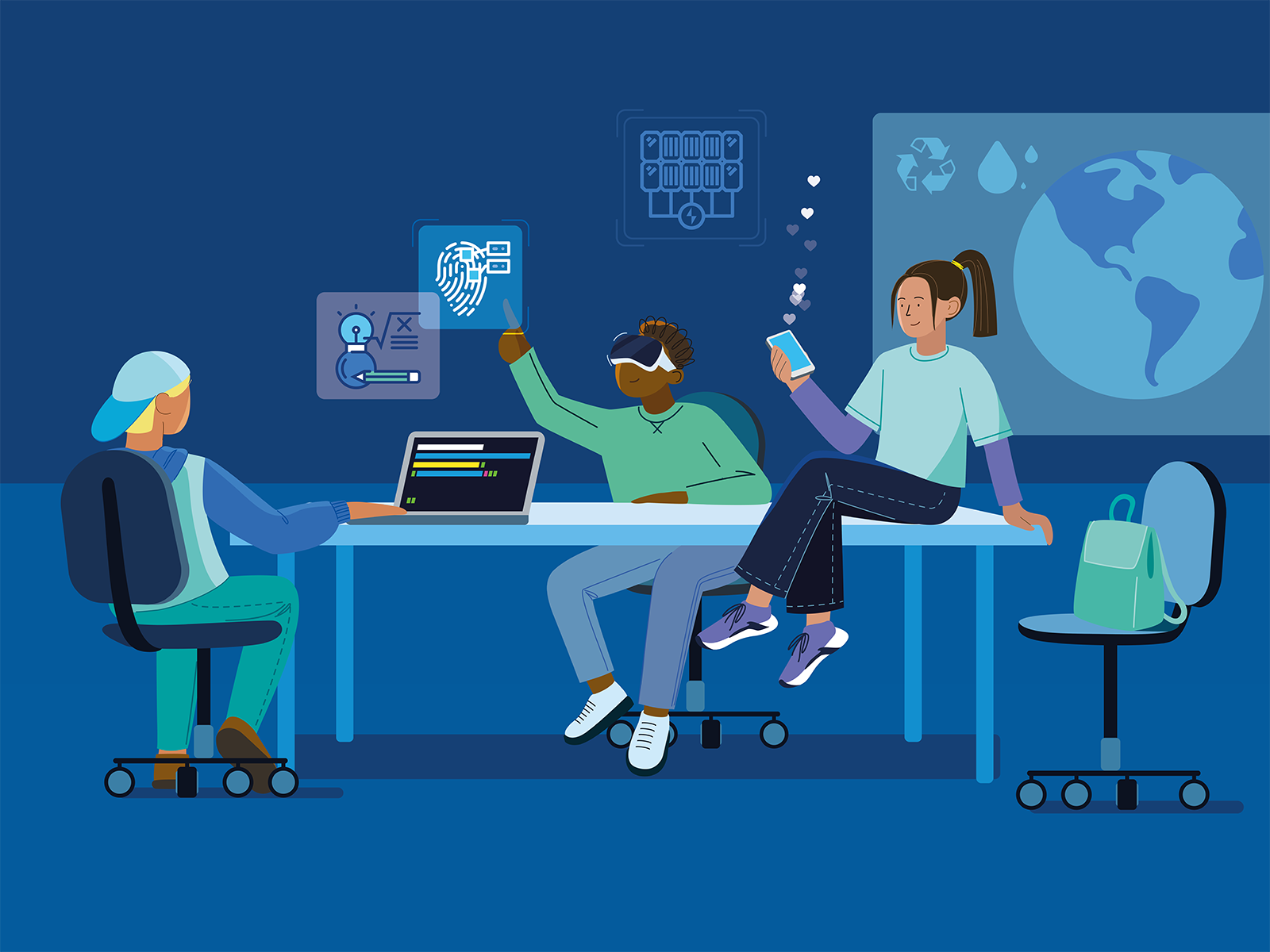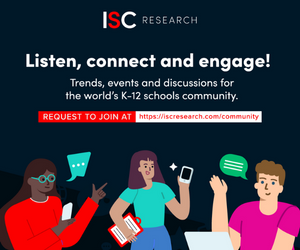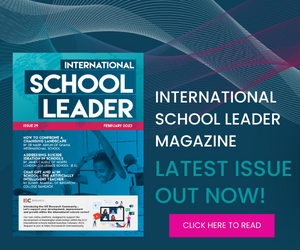By Dee Saran
Dubai College was shortlisted for the Digital Technology in Learning award at the 2023 International School Awards.
Over the last three years, COVID-19 has disrupted educational norms and ensured that there has been an accelerated use of technology in the classroom. This has led to some positive repercussions for teachers, be it in the use of audio feedback to reduce teacher workload to using ChatGPT to plan lessons and create model answers! Even so, with little evidence that technology is improving school effectiveness, it is essential for leaders to understand what we need technology to do for our students and how we as leaders know it is working.
With so many schools having accelerated their use of digital, it is now time to re-evaluate how we should use technology to enhance learning and teaching. Having spent some time developing a digital strategy with our Head of Digital Skills it became very clear that our technological approach should marry with our pedagogical vision. We have worked hard to design and develop a unique and bespoke programme of digital skills to be taught in a discreet weekly lesson to incoming Year 7 and Year 8 with the aim of challenging students and allowing them opportunities to innovate.
The programme has helped to transform the student learning experience at Dubai College. A key aim of the programme is to equip students with the digital skills that can easily be leveraged by departments and prepare students for the world of work.
We now need to think critically about how to deploy technology strategically.
A foundation of digital skills
Two of the key pedagogical drivers that have informed the curriculum design are oracy and the science of learning, alongside the Foundation Project Qualification (FPQ) philosophy. The digital skills programme dovetails purposefully to blend with elements of the College’s learning and teaching vision. We have lent heavily on the expert research from Dr Rose Luckin to ensure that the digital programme compliments the Dubai College learner profile and develops the advanced cognitive skills (thinking, linking, realising, creating, enquiring and collaborating) we are seeking to embed within the school in addition to fostering the attributes of risk-taking and resilience.
All students in Years 7 and 8 now undertake a two-year course in digital skills. Year 7 students complete a practical Office 365 bootcamp designed to ensure a seamless transition into the Dubai Microsoft ecosystem.
To ensure that our students are not only consumers of online media but also successful and capable content creators, we have designed an ambitious and challenging unit of learning based around filming and editing video in Adobe Premiere Pro. We also work on the theory of dual coding through the design of subject-specific infographics through the Adobe Spark application. We return to Adobe Premiere Pro later in the academic year for students to develop their skills and produce an academically focused tutorial-style video from an area of the curriculum of their choice.
In an alumni exit poll, Microsoft Excel was highlighted as a skill they wish they had been taught. Therefore, a robust 10-week programme on Excel has been designed to introduce students to the application and develop their skills. The two-year course culminates with a unit rooted in the development of their research skills and prepares them for their Higher Project Qualification (HPQ) project in Year 9.
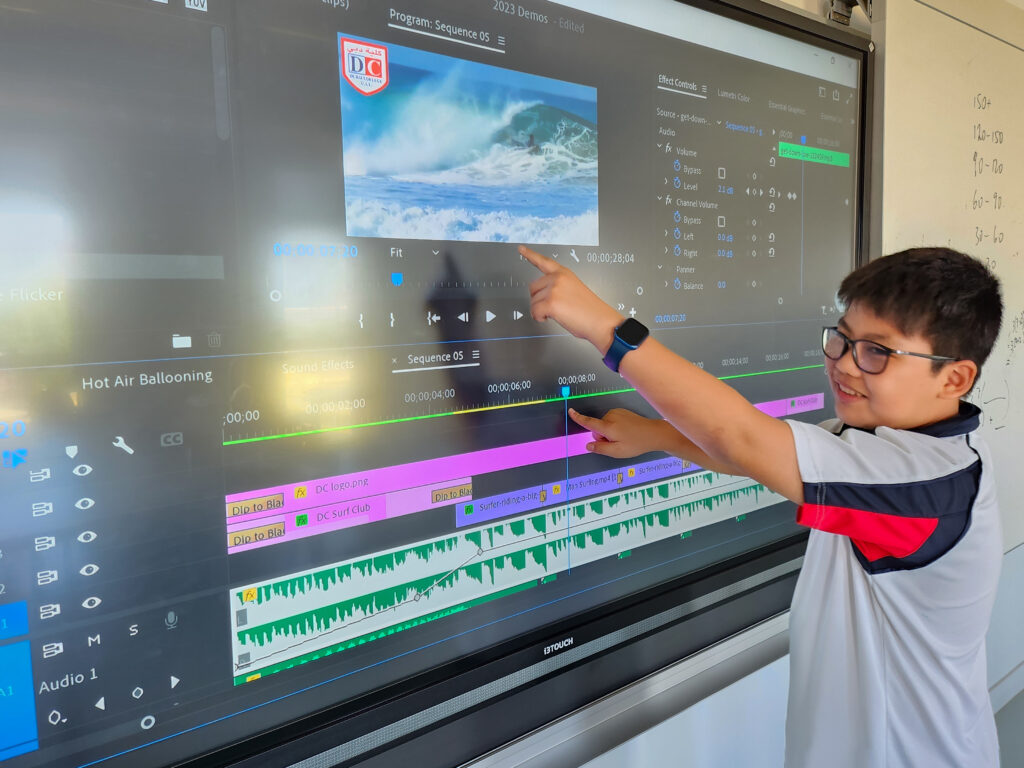
Digital skills that begin with the learner
Students have improved their critical research skills and developed their oracy and marketing skills. These skills not only mirror those needed in the workplace but have allowed students an opportunity to collaborate, create and contribute.
The momentum in which the curriculum and skills have been developed and incorporated into other areas of the school has led to the integration of a brand-new digital skills studio in our newly designed campus hub. Students will be given the opportunity to use bespoke studios to record themselves explaining key concepts and content through video broadcasts and podcasts, enabling them to become content producers.
With today’s innovations very quickly becoming commonplace, we now need to think critically about how to deploy technology strategically. As school leaders we should be creating, designing and imagining a future where technology should be used in service of that vision rather than dictating it. Too often technological determinism overshadows our real needs. We should always start with the learner and the learning at the forefront of these decisions. By involving learners in the decision-making, they feel a shared sense of responsibility in the decisions that will impact their future.
Advice for implementing a digital learning curriculum that matches your vision and the needs of your students:
- Start by auditing the skills that students will need as they go through the key stages and assess their competency in those skills when they first join the school.
- Reach out to your alumni and ask them what they wished they were taught. We listened and integrated Excel training into our curriculum.
- Pitch for a designated slot with the curriculum where students have the time to master the skills and have an opportunity to apply them.
- Match your pedagogical approach to your technological approach and ensure they align. Use the TPACK model as a starting point.
- Involve students and staff in the curriculum design, this helped us to gain momentum across the school and to share ideas.
- Do not buy into fads or trends when purchasing technological tools. Start with your students’ needs and what will align with your approach to learning and teaching.
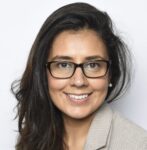
Dee Saran is Deputy Head of Learning and Teaching at Dubai College, UAE. Connect directly with Dee on Twitter
